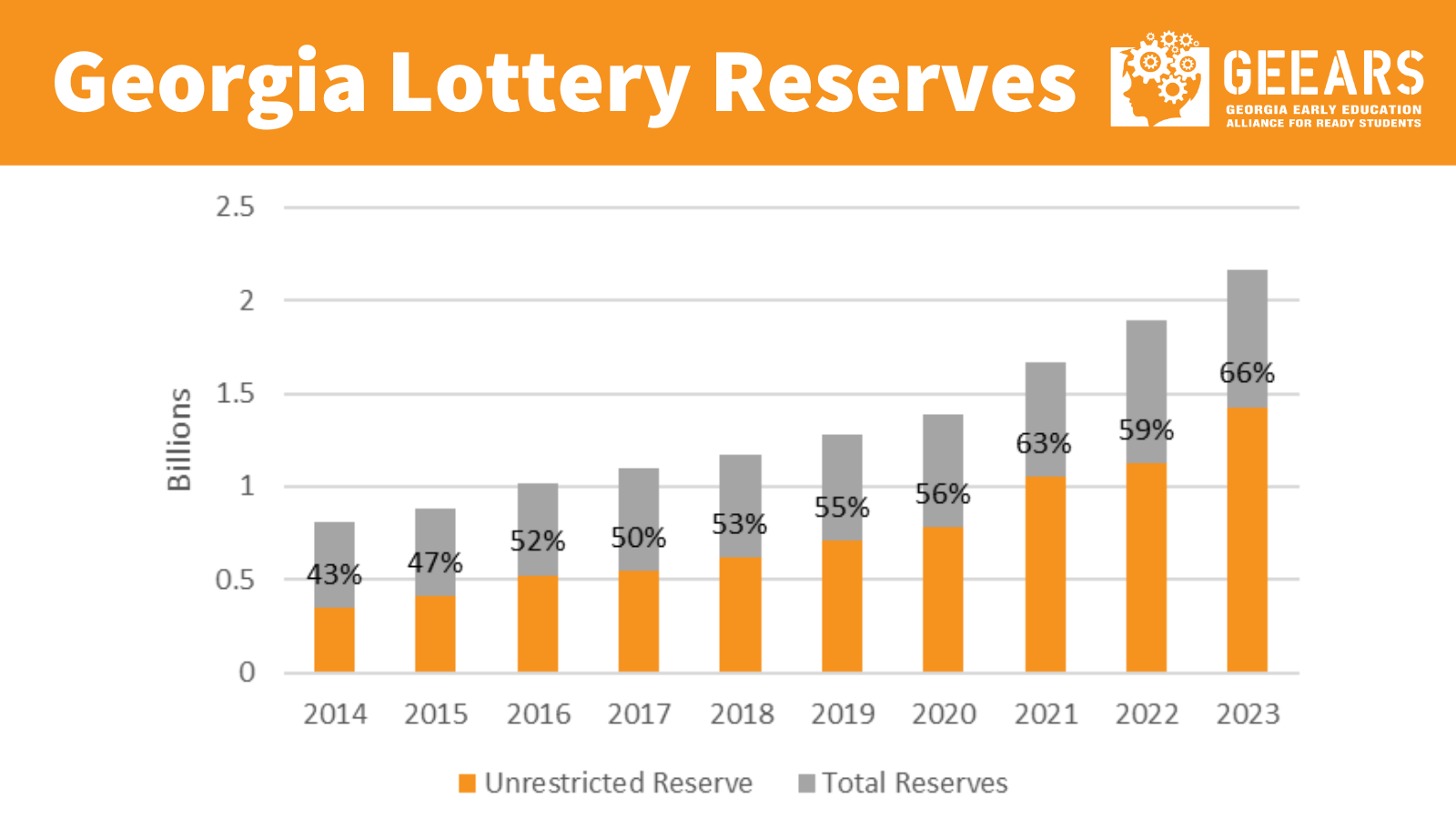Record Funding Transmitted to Georgia Education Lottery Reserves
Now is the Time to Better Support Georgia’s Youngest Children
For just over 30 years, the Georgia Lottery has funded the state’s nationally-recognized Pre-K Program, as well as HOPE scholarships. We at GEEARS are immensely proud that this funding has supported so many Georgians at the start and end of their educational journeys. Yet, at a time when the Georgia Lottery’s unrestricted reserves are at record levels, we believe that Georgia could and should utilize additional Lottery funds for critical early education needs that will improve Pre-K quality and access.
Earlier this month, the latest Georgia Revenues and Reserves Report was released. The report shows that the Georgia Lottery continues to do well, with over $1.5 billion in net proceeds in the last fiscal year.
Historically, the Governor’s budget appropriates about one-third third of Lottery funding for Georgia’s Pre-K Program, while the rest is used for HOPE scholarships. Any funding not appropriated to these programs is put into a reserve account. Georgia is required by law to have 50 percent of the prior year’s net Lottery proceeds saved in case of a shortfall, yet it puts far more than that into reserves. Usable, unrestricted reserves have surged over the last decade to record amounts and this year is no exception. In FY23, $2.2 billion was in the Lottery reserves, of which around $1.4 billion (66%) sat in an “unrestricted” reserve account.

At the same time that these lottery reserves remain untouched, our state is missing opportunities to better serve our youngest children. Earlier this month, GEEARS outlined several opportunities to the House Working Group on Early Childhood Education, a group created by House Speaker Jon Burns to provide recommendations on policies to expand access and improve the effectiveness of Georgia’s Pre-K Program.
Specific opportunities that GEEARS outlined to the Working Group include:
- Permanently reducing Pre-K class size from 22 students per classroom to 18 to better address children’s individual needs and meet national quality benchmarks;
- Increasing teacher pay, especially for assistant teachers, to reduce turnover;
- Increasing Pre-K classroom operations budgets and classroom start-up grants to support high-quality environments and keep up with inflation;
- Consider implementing a pilot program for three-year-olds to provide children with an additional year of high-quality prekindergarten; and
- Exploring ways to support Pre-K providers with capital funds to ensure safe environments and increase access.
Collectively, these opportunities reflect what research characterizes as the most effective programs for young children, acknowledging the impact of a child’s experiences during the early years on positive brain development. For example, research that a significant factor in an early childhood teacher’s decision to leave the profession is low pay social-emotional development as well as relationships between teachers, children, and families.i
We hope that the Working Group and the Georgia General Assembly will support tapping into these reserves to better set up Georgia’s youngest children for success in Kindergarten and beyond. Simply put, every additional dollar for Georgia’s Pre-K is an investment in Georgia’s future.
1. Michelle Maroto and Richard Brandon, “Summary of background data on the ECCE workforce. In the early childhood care and education workforce: challenges and opportunities: A workshop report,” pp. 107-210, 2012.